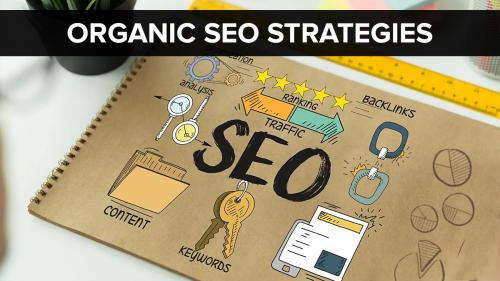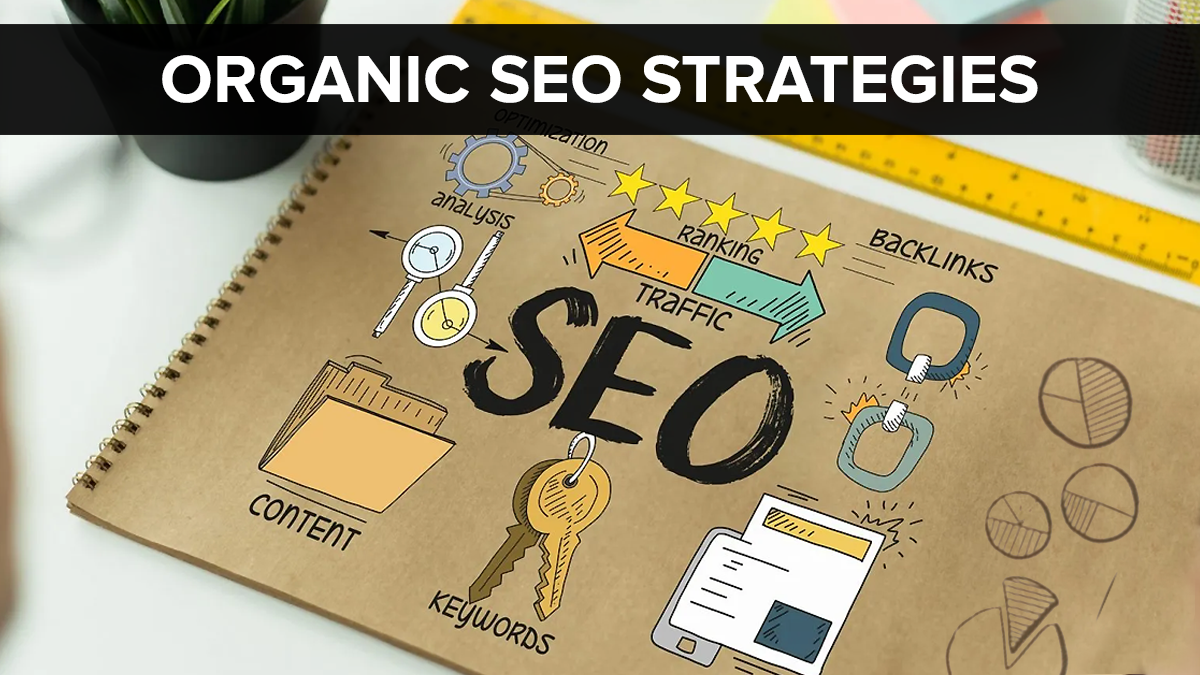SEO Strategies for Academic Content


Search Engine Optimization (SEO) is a set of techniques and strategies aimed at enhancing the visibility and ranking of a website
or online content in search engine results pages (SERPs).
The primary goal of SEO is to optimize various elements of a webpage to align with the algorithms used by search engines, such as Google, Bing, and Yahoo. These optimization efforts include on-page factors like keyword optimization, meta tags, and content structure, as well as off-page factors like link building and social signals.
SEO is crucial for improving organic traffic, ensuring that web pages are easily discoverable by users searching for relevant information. It plays a pivotal role in the dissemination of academic content on the internet.
Keyword Research
Identifying Relevant Keywords
Identifying relevant keywords is a fundamental aspect of SEO, involving the careful selection of terms and phrases that accurately represent the content of a webpage. In the academic context, this process begins with understanding the specific topics, subjects, or research areas covered in the content.
Researchers and content creators need to consider not only commonly used terms but also variations and synonyms that potential readers might use in search queries. By aligning content with these keywords, academic material becomes more discoverable to search engines, increasing the likelihood of attracting the right audience.
Long-Tail Keywords
Long-tail keywords play a vital role in refining search intent and targeting niche audiences. In academic content, long-tail keywords are often specific phrases or combinations of words that capture the nuanced aspects of a research topic or scholarly subject. While general keywords may have higher search volumes, long-tail keywords attract users with a specific interest in niche areas of study.
Incorporating long-tail keywords into academic content not only improves the chances of ranking higher in relevant searches but also enhances the overall user experience by connecting researchers, students, and academics with highly specialized information.
Tools for Keyword Research
Keyword research tools are essential resources for SEO professionals and content creators seeking to identify and analyze relevant keywords. These tools provide insights into search volume, competition, and variations of keywords, helping individuals make informed decisions about the terms to target.
Popular tools like Google Keyword Planner, SEMrush, and Ahrefs offer comprehensive features, allowing users to explore potential keywords, assess their competitiveness, and discover related terms. These tools also assist in uncovering emerging trends and adapting strategies to align with evolving search behaviors.
On-Page SEO Optimization
Title Tags and Meta Descriptions
Title tags and meta descriptions are critical elements of on-page SEO that directly impact a webpage's visibility in search engine results. The title tag serves as the headline for a page and should accurately reflect the content's main topic while incorporating relevant keywords. It is a crucial factor considered by search engines when ranking pages.
Meta descriptions, on the other hand, provide a concise summary of the page's content and should encourage users to click through. Both elements require strategic optimization to capture the attention of search engine algorithms, potential readers, and individuals browsing through a digital publishing catalog.
Header Tags and Content Structure
Header tags (H1, H2, H3, etc.) and overall content structure play a pivotal role in on-page SEO by providing a hierarchy that communicates the organization and importance of information.
Search engines use header tags to understand the structure of content, with H1 typically representing the main heading and subsequent tags indicating subheadings. This structure enhances readability for both search engines and users. Well-organized content with clear headings helps search engines interpret the context of the information, contributing to improved ranking.
Keyword Placement and Density
Strategic keyword placement and density within the content are crucial aspects of on-page SEO optimization. While it's important to incorporate relevant keywords naturally, stuffing content with keywords can lead to a poor user experience and may be penalized by search engines.
Instead, keywords should be placed in strategic locations, such as the title, headers, and throughout the body of the content, where they naturally fit and contribute to the overall context. This strategic placement helps search engines understand the relevance of the content to specific queries.
Link Building Strategies
Internal Linking
Internal linking involves connecting pages within a website through hyperlinks, and it is a crucial aspect of SEO for academic content. In the academic context, internal links provide a navigational structure that helps both search engines and users understand the relationships between different pieces of content.
This is an effective way to guide users to additional relevant information, creating a more comprehensive and interconnected knowledge base within the academic website. Moreover, incorporating links to a digital publishing catalog enhances accessibility to a broader range of scholarly materials, providing users with a seamless navigation experience and facilitating their exploration of diverse academic content.
External Linking
External linking involves including hyperlinks in academic content that lead to reputable sources outside the website. When academic content references authoritative sources, it adds credibility and depth to the information provided. Search engines consider external links as indicators of the content's reliability and relevance, contributing to higher rankings.
For academic SEO, it's essential to link to well-established and respected sources within the field. These outbound links not only validate the information presented but also foster a sense of academic community and collaboration. Building a network of external links to reputable academic sources strengthens the credibility of the content.
Backlink Building for Academic Content
Backlink building is the process of acquiring external links from other websites to one's own academic content. In the academic realm, earning backlinks is a powerful strategy for improving search engine rankings and establishing authority within a particular field. Quality backlinks from reputable and relevant websites are considered a vote of confidence in the academic content's credibility.
Engaging in outreach, collaborations, and promoting the content through various channels can help attract backlinks. However, it's crucial to focus on organic and ethical practices, as search engines value the quality of backlinks over quantity.
Technical SEO
Website Speed Optimization
Website speed optimization is a critical component of technical SEO that focuses on enhancing the loading time and overall performance of a website. Search engines, such as Google, consider page speed as a ranking factor, and a slow-loading website can negatively impact user experience and search rankings.
To improve website speed, technical measures such as optimizing images, leveraging browser caching, and minimizing HTTP requests are often implemented. Mobile responsiveness is also crucial, as an increasing number of users access websites from mobile devices.
XML Sitemaps and Robots.txt
XML sitemaps and robots.txt files are essential elements of technical SEO that help search engines crawl and index website content effectively. An XML sitemap is a file that provides a roadmap of the website's structure and hierarchy to search engines.
It lists URLs along with additional information, such as the last modified date and the priority of each page. This helps search engines understand the organization of the website and index its content more efficiently.
Conclusion
Implementing effective SEO strategies for academic content is paramount in the digital age to ensure the discoverability, accessibility, and impact of scholarly materials. The journey begins with meticulous keyword research, where the identification of relevant terms and the incorporation of long-tail keywords cater to the specificity of academic topics.
On-page SEO optimization, through well-crafted title tags, meta descriptions, and thoughtful content structure, serves as the cornerstone for enhancing both search engine visibility and user experience.Link building strategies, encompassing internal linking, external referencing to reputable academic sources, and the cultivation of backlinks, contribute to the establishment of a robust online academic presence.
These strategies not only validate the content but also foster collaboration within the academic community. Technical SEO elements, including website speed optimization, XML sitemaps, robots.txt files, SSL implementation, and secure browsing, are critical for improving the overall performance, security, and credibility of academic websites.
Post Your Ad Here
Comments